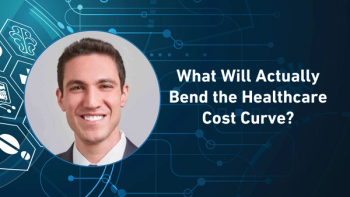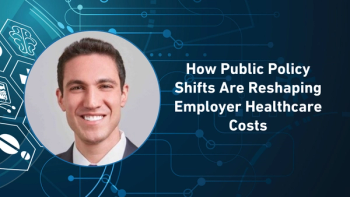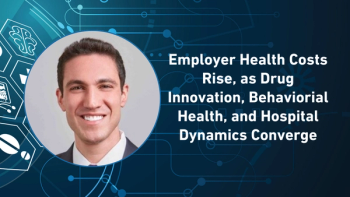
Trade & Channel Strategies 2023: An Interview with Douglas Bock of Archbow Consulting
Partner for Archbow Consulting discusses the conference, the IRA, and specifics of PAP business rules
In an interview with Pharma Commerce editor Nicholas Saraceno, Douglas Bock, Partner, Archbow Consulting, discusses his breakout session and other key factors of the Trade & Channel Strategies conference.
Pharma Commerce: Which trends at Trade & Channel Strategies have caught your eye and why?
Bock: This is a great trade and distribution conference, and I've been to this conference several times in the past. First of all, what's fantastic is that there are about 200 people here. You get a lot of people with a trade distribution background and they're thinking about how we physically move products from the factory to the patient. It's fantastic.
Pharma Commerce: Could you provide an overview of your Inflation Reduction Act (IRA) presentation?
Bock: One of the things that we're seeing with the Inflation Reduction Act is products that say, cost $100, are going to cost insurance plans much more money. They have a higher responsibility for covering the costs. Manufacturers also have a higher responsibility for products for about $100,000. While those programs are good for beneficiaries and they're good for taxpayers, they might not be good for plan sponsors and or pharma manufacturers. The challenge for a pharmacy benefit manager is that they sell their services and compete on price. If their costs are going to have to increase, they're now going to have to pass on those costs to their consumers or they'll need to find other sources of revenue. One of the things that we're closely watching at Archbow is whether or not those other sources of revenue are things like increase utilization of co-pay accumulator and adjustment programs. Whether it's an accumulator, whether it's a maximizer, or if it's something like an alternate funding program, these are other sources of revenue that we're seeing being tapped for the benefit non necessarily of patients, but for those other players in the ecosystem.
Pharma Commerce: What are the specifics of the PAP Business Rules, and how are they being utilized?
Bock: Patient assistance programs have been around for a long time and they're really one of the nice things that we as a pharmaceutical industry can show the altruistic side of what we do. We can help patients that truly are in need of getting drugs because they can't afford them. But, that generosity has been taken advantage of by some third party actors. Traditional PAP programs typically include eligibility criteria like a patient has to be or an indication that's on label, they need to be a US resident, make less than a certain percentage of the poverty limit, and that's all good and we've tried to make it as easy as possible for patients who really need a drug to be able to access it. That willingness to try and make it easy like I said is being exploited by third parties. What these third parties are doing is getting themselves in-between the physician, the payer, the pharmacy, and the manufacturer. They're actually carving out high cost specialty drugs that have generous patient assistance program benefits and instead of going to a patient who truly needs the drug, they're classifying the patient as uninsured because they've decided they're not going to cover the product. They're taking advantage of the eligibility criteria by saying a patient who doesn't have coverage for a specific product now is eligible for the patient assistance program. What's happening is that manufacturers are giving away many more free drugs than they anticipated. What's really dangerous about this type of program is that plan sponsors are being trained that they don't need to pay for innovative new treatments. That there's a way to get things for free. It's not really free, nothing is free. Those companies that are sort of intervening are charging 25 to 30 percent for the service of a willing patient. It is something that we need to take a look at closely as an industry because not only does it have short term implications on the financial health of a brand, but has long term implications for the viability of the industry itself.
Newsletter
Stay ahead in the life sciences industry with Pharmaceutical Commerce, the latest news, trends, and strategies in drug distribution, commercialization, and market access.




